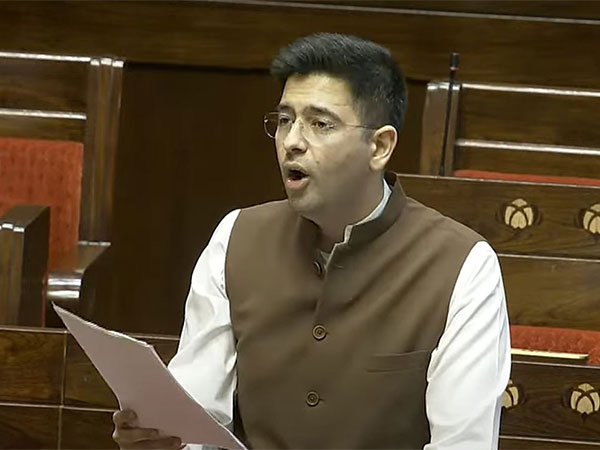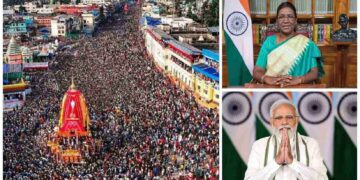Aam Aadmi Party MP Raghav Chadha on Thursday spoke on the increasing concerns about the taxation system in India. Drawing attention to the broader nature of taxes in the life cycle, Chadha critically highlighted how citizens are taxed from their birth to their death.
Speaking during the discussion in the Rajya Sabha, Raghav Chadha questioned the price received by citizens in exchange for their contribution, including whether he benefits from world class healthcare, education or infrastructure.
He said, “There are only two things in life: death and tax. From your birth to the moment your family mourns your death, the government is not to help you at every step but to impose tax on you.”
Chadha said, “First phase, birth stage. The vaccine he is applied before the child’s eyes open. If the fare of the hospital room is more than 5,000, then 5 percent GST is charged. 5 percent GST is charged on baby care and if parents distribute sweets after the child’s birth, then they also have 5 percent GST.”
He mentioned the second phase – childhood, where 12–18 percent GST is imposed on baby food.
He said, “Diapers have 12 percent GST and toys also have 12 percent GST. When the first haircut of the child is cut, which we call ‘Mundan’, then that service also has 18 percent GST. Photography services also have 18 percent GST.”
He said, “When the child starts going to school, GST is imposed on uniforms, shoes, lunch boxes, etc.. 12 percent GST is imposed on the notebook, the stationery item has 18 percent GST and if the child wants to participate in a curricular activities, it also has 18 percent GST.”
The AAP MP mentioned the third phase i.e. adolescence.
Raghav Chadha said, “At this age, people buy their first smartphone and tax is also on it. If the phone is imported then it is also implemented. Then when they recharge the phone, it is also taxed. Along with this, there is a tax on internet connection, Netflix, Spotify or game subscription. Carmel Popcorn also has GST. When he buys his first bike or scooter after the age of 18, he also gets GST. “
Chadha mentioned the fourth phase- Higher education. He said, “At this stage, if you are studying in a private college, GST is imposed on tuition fees. If you live in a hostel or PG, GST is also imposed on it, even GST is imposed on student loan processing fees.”
Referring to the fifth phase of life, the MP said that this is the time when a person starts his career.
Chadha said, “This is the golden era of direct taxes. According to the income slab, TDS (tax deduction at the source) is deducted and then income tax is charged. When they get their first salary and they take their family out to eat, the government still taxes it. Even the premium of health and life insurance is taxed on it.
Raghav Chadha mentioned the sixth phase – middle age, when his income is at the peak, and also increases the tax burden on him.
He said, “When they get appraisal or promotion, they give a large part of their income as income tax. When they buy a car, GST is also levied along the road tax. When they fill the fuel, VAT and excise duty is also imposed. If someone makes his own house, he pays the stamp duty fee on the ground. Then, after the construction material is imposed, then the construction material is imposed on the construction material. Payment has to be paid. “
Chadha said, “The seventh phase is of retirement, when the person wants a peaceful life. However, even in this phase the government levies pension and interest income. When the person gets old, GST is imposed on health care bills and medicines. In this phase, in this phase, if a person writes a will for his family, he also has to pay on legal fees.”
Raghav Chadha said that the eighth phase- that period of death when the person dies.
He said, “GST is also imposed at this level. When someone dies, things like ghee, sandalwood, coconut etc. are used during his funeral, and taxes are also imposed on them. Publishing death related news also leads to 5 percent GST. After death, when the property is transferred to the family, the government collects fees and gratuity on the mutation.






